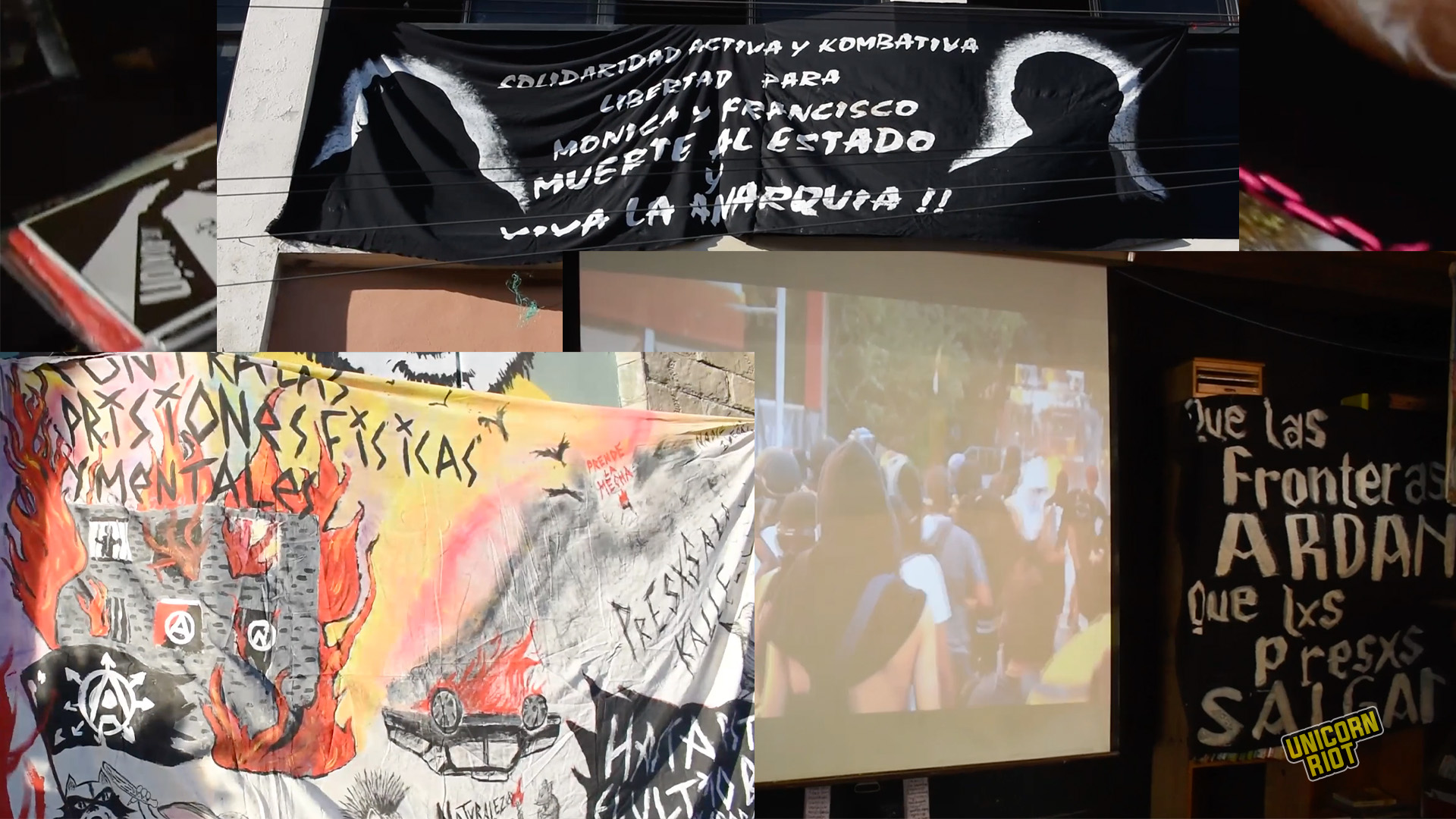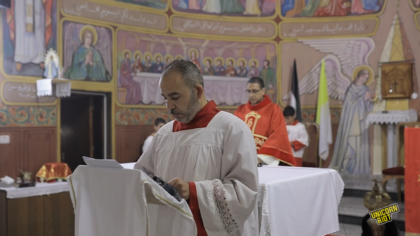Anarchists Gather for Conference at the Corner of the World
Tijuana, Mexico — Where the United States, the Pacific Ocean, and Mexico meet, a place sometimes referred to as “the corner of the world,” a sprawling 18-foot-tall barrier stretches out into the salt water, marking the international border. Waves crash against its concrete foundations and, at high tide, against the bollards themselves that stretch out more than 100 feet into the ocean.
Here, on the evening of January 25, a group of about 50 anarchists from around the world gathered and, in a symbolic act of disrespect and disobedience, projected films upon the wall itself.
“It was really powerful to show anarchist films and documentaries there,” said Dandy, one of the organizers of the event. “Just taking the space, you know? This space where they’re, even in this moment, building an even taller wall.”
Those in attendance had gathered from all parts of the U.S., Mexico, and some even as far as Spain and Chile, to convene in this most divided of territories for an anarchist conference called the International Gathering of Anarchist and Autonomous Practices Against Borders.
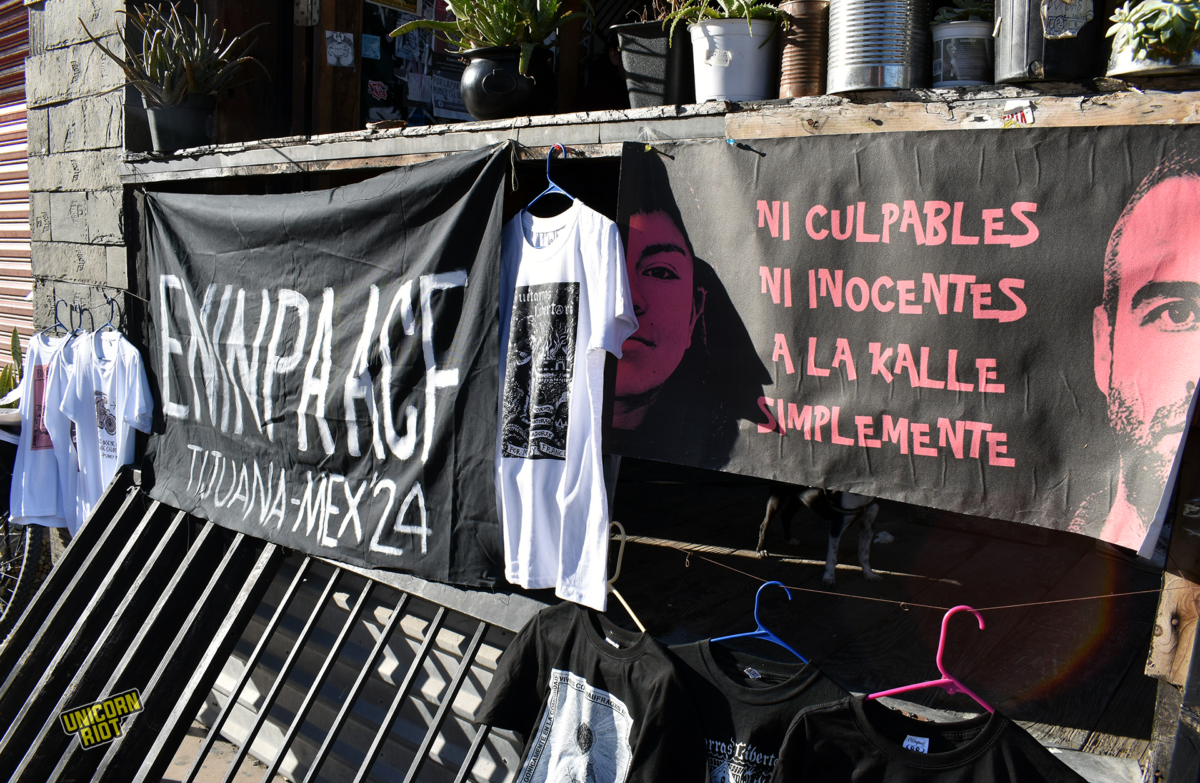
The three-day event, which was partly hosted at Enclave Rabia Caracol, a five-story anarchist community center in downtown Tijuana, included workshops on political prisoner support, humanitarian aid along the border, mutual aid self/social therapy, Tijuana anarchist history, the role of NGOs and nonprofits in suppressing political movements, tech security, and more. There were also shows, film screenings, a mini-book fair with anarchist publishers and artists tabling materials, informal discussions, and free meals.
Organizers of the event, which drew about 90 people, said the attendance far exceeded their expectations. “Realistically when people hold this kind of gathering, in my experience, it doesn’t bring in so many comrades,” said José, one of the event’s organizers. “Moreover the language barrier in the past had been something we couldn’t overcome. Which I think was the first obstacle to overcome in this gathering, which we were able to accomplish.”
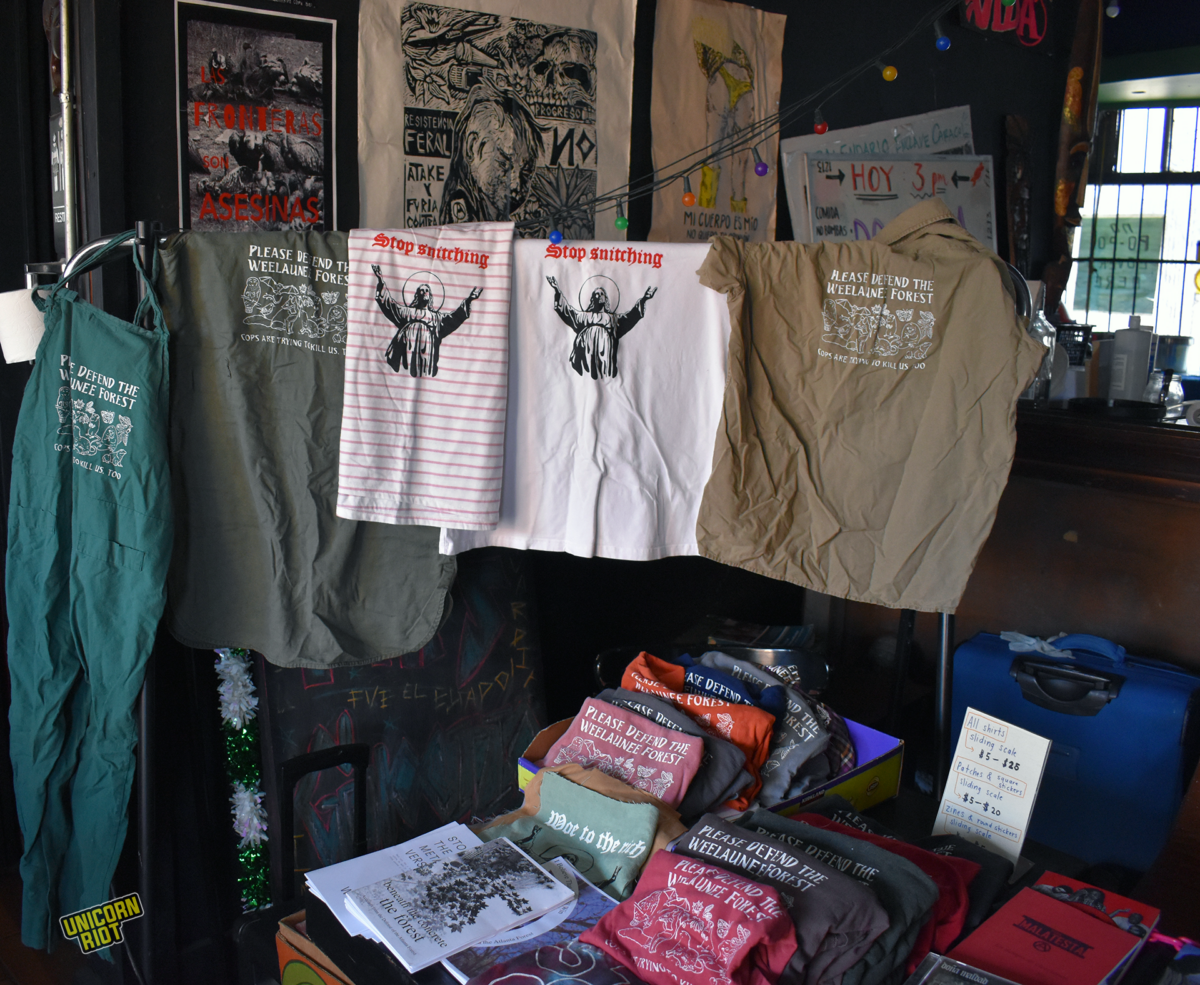
The language barrier, and the border it helps reinforce, were transcended in part with the help of a U.S.-based anarchist media project Crimethinc, which helped spread the invitation to the gathering among U.S. audiences on its website and contextualized the event within a long history of anarchist resistance to the U.S./Mexico border. Crimethinc also hosted a film screening during the gathering.
Organizers said the idea for the international gathering grew from a series of one-day workshops hosted by anarchists in Tijuana focusing specifically on anti-prison organizing in Mexico.

“At first, it wasn’t going to be an international gathering,” said Dandy. “Rather we just wanted to bring this group from Chile, but we thought let’s not just bring the group from Chile, let’s have discussions between people so it wouldn’t just be something temporary, but would allow us to build a network and discuss all these topics.”
“It seems to me that the gathering was a success from the beginning when we began to materialize our ideas and practices,” said José. “Because so often these ideas and proposals remain just that…ideas and never become reality or are abandoned out of a lack of confidence that they can catch on.”
The gathering in Tijuana coincided with another event, the Garabato Zine Fest, where publishers of “fanzines,” as they are called in Mexico, including some anarchist publishers, shared their work, read poetry and performed music. (Garabato is Spanish for “doodle”). One publisher that tabled at the event, Ediciones Caraduros, also runs an anti-authoritarian “theory café” in Tijuana nearby the location where the event was hosted.
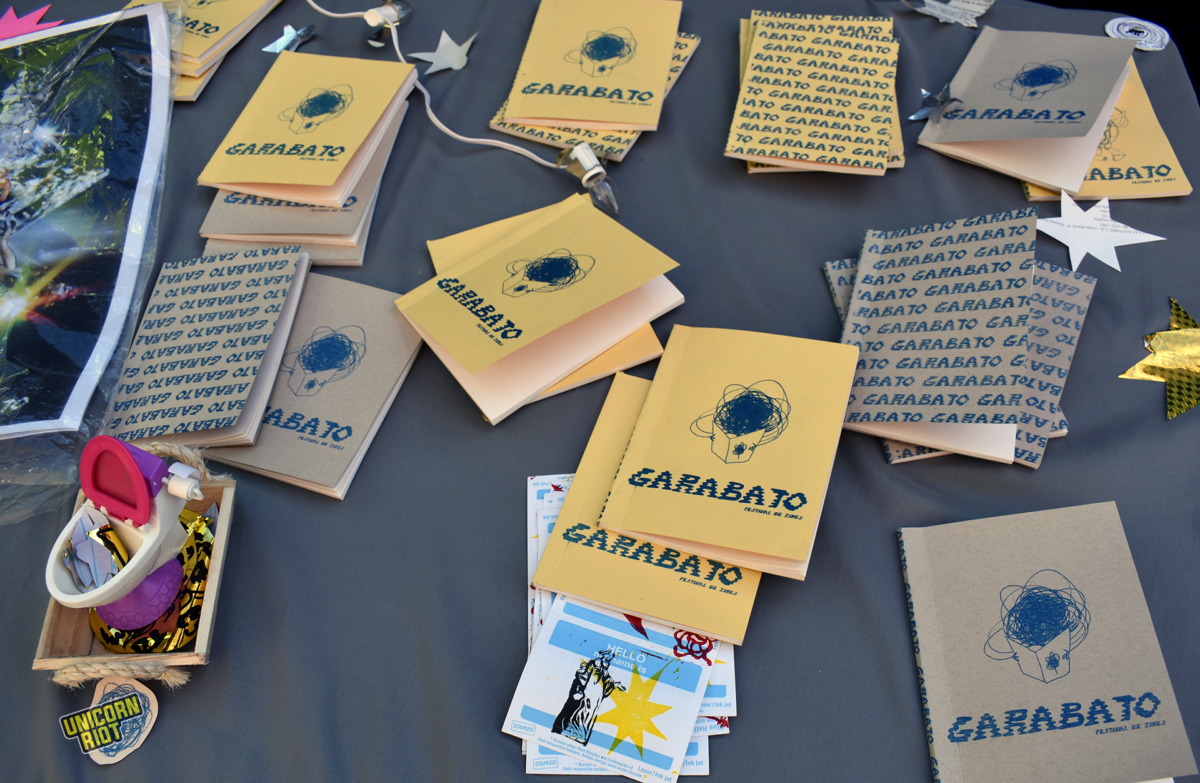
“We’re already organizing with other comrades in other places to carry out the next gathering in Argentina in July 2025,” said Jose, “which will have an anti-prison focus. We’ll take the whole year to spread that call and hold events in preparation for it in Mexico City, Chihuahua, Tijuana, Perú, Argentina, Chile, and the U.S.”
But event organizers also emphasized the importance of people interested in anarchism organizing their own events and gatherings wherever they are.
“What I would like is if the people who came to the gathering later planned their own gatherings. And not wait for us,” said Dandy. “People should organize a gathering themselves in the places where they came from and create it for themselves. Rather than waiting for someone to plan a gathering for you.”
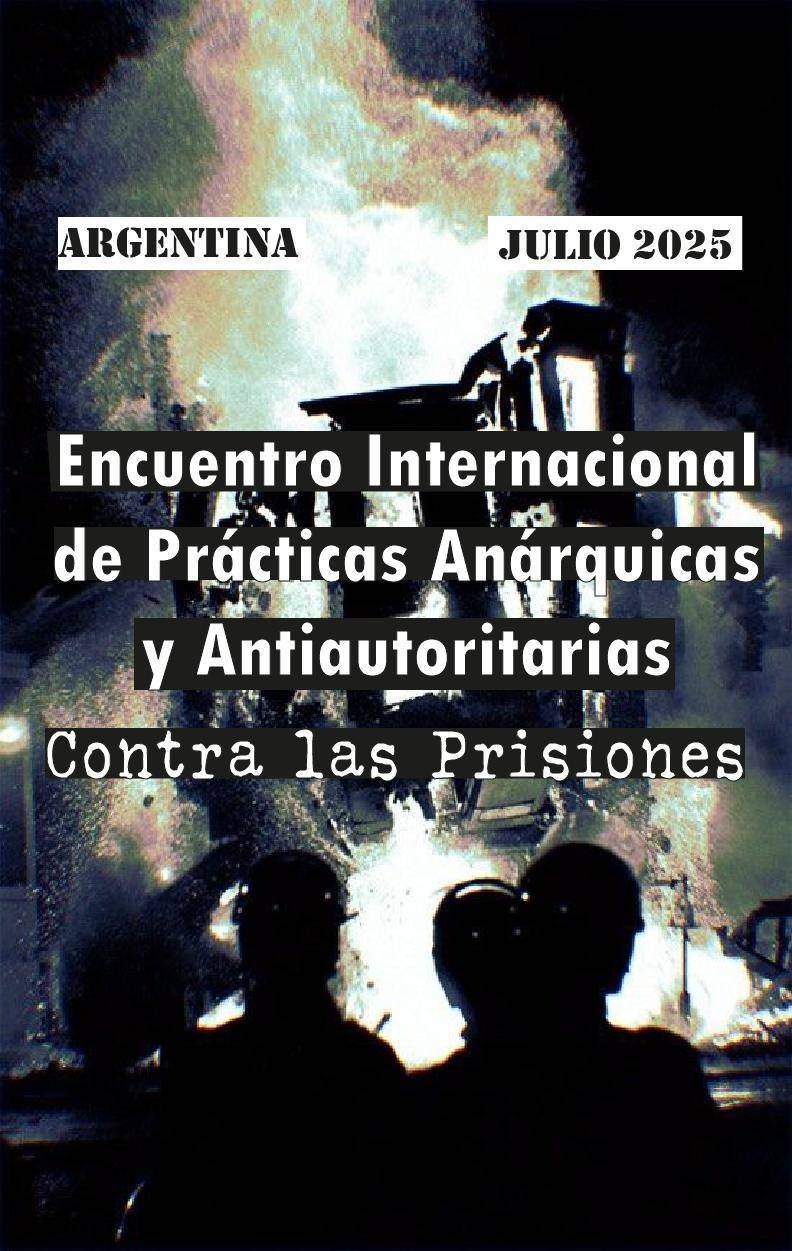
Watch our special on Enclave Rabia Caracol, the anarchist social center in Tijuana, Mexico where the conference was held, below. Unicorn Riot visited Enclave and talked to some of the collective members about the goals of their project, the situation in Tijuana, and their vision of a world without hierarchy or authority.
Also located in Tijuana is the collective house Casa de Luz, which migrants and asylum seekers who are LGBTQIA+ or part of other marginalized communities. See our special Queer Migrants Find Shelter and Community in Tijuana Collective House, below.
Please consider a tax-deductible donation to help sustain our horizontally-organized, non-profit media organization:

Follow us on X (aka Twitter), Facebook, YouTube, Vimeo, Instagram, Mastodon, Threads, BlueSky and Patreon.
